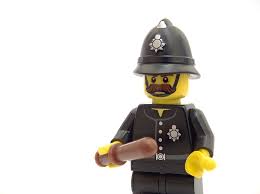The Positives
“That’s tattling!”
“Don’t be such a little snitch!”
“I don’t want to hear about it!”
At first you may be glad when your impulsive toddlers begin to learn the rules of your house.
It may even seem cute when they point out that a sibling or another child is breaking a rule: “She has her shoes on the sofa.”
Sometimes the reports on siblings’ behaviors can be helpful in keeping everyone safe:
“The baby has a piece of puzzle in his mouth.”
“Lela is stuck on top of the swing set.”
What is the Problem?
Too Much Tattling
 Somewhere along the way, though, you may begin to feel like you are living with the “rule police.” Your children may start telling you about every real or imagined infraction they see others committing. They want justice. They want you to take action.
Somewhere along the way, though, you may begin to feel like you are living with the “rule police.” Your children may start telling you about every real or imagined infraction they see others committing. They want justice. They want you to take action.
While it may be developmentally appropriate for your preschoolers to begin internalizing rules, you may find yourself overwhelmed by their endless reports of disobedience by others. You may worry that your children will be doomed to grow up as a “rat.”
You suggest they tone down the tattling. You tell them you don’t want to hear it. You may feel you have won the battle since your children no longer come to you with news of every little violation. They know that they will not be rewarded for being a snitch. And it works, sometimes, for a while, maybe.
Too Little Telling
But fast forward in your children’s lives. Imagine the stories on the evening news: school shootings, bullying, binge drinking, a rise in teenage suicide. There are so many tragedies impacting children. Following these episodes, the press frequently asks, “Didn’t anyone know?” or “Why didn’t anyone get help to stop it?”
After years of ordering children not to tattle, the question really becomes, “Why would they tell?” They may have interpreted your instructing them not to tattle to mean that they should not get adults involved or that they themselves should not get involved when peers are having problems.
A Fine Balancing Act
 As a parent, you want and need the lines of communication to be open with your children; yet you can feel like you are performing a delicate balancing act.
As a parent, you want and need the lines of communication to be open with your children; yet you can feel like you are performing a delicate balancing act.
-
On one side, you want your children to learn to handle their problems on their own.
-
On the other side, you want to support and guide them while they are still developing their own moral code.
Your children may be left wondering if now is one of those times when they should be working it out on their own or if they should tell.
Guidelines
The following guidelines offered by Barbara Coloroso in Kids are Worth It can help teach your children when they should or should not tell. From an early age, you can help your children distinguish between telling and tattling by asking them if telling you will get another child into trouble or out of trouble.
-
If telling only gets another into trouble, such as the shoes on the sofa example, then that is tattling and don’t tell.
-
Conversely, if telling gets someone out of trouble, as when the child was stuck on top of the swing set, then tell.
Some cases are not as clear cut. Often telling will get someone in trouble and out of trouble.
An example would be if your child knows of another who is stealing or experimenting with drugs or participating in other high risk, dangerous activities.
Telling may get the other child into trouble at first, but ultimately may help a child avoid more serious problems. In such situations, children should be encouraged to tell.
Parting Thoughts
At first glance, these guidelines may appear simplistic.
- In trouble – tell
- Out of trouble – don’t tell
- In trouble and out of trouble – tell
Yet when you think about the mix of messages parents often give children about tattling, it may feel like a relief to have such straight-forward guidelines.
You can start when your children are young by helping them learn when they are tattling and when they are telling. Perhaps as your children become older and the issues are bigger, they will know which situations require adult help. And maybe someday, as individuals and as a society, we will be able to intervene before the next tragedy occurs.
_____________________________________________________________________
For more information about managing sibling rivalry, check out the following books. Purchasing from Amazon.com through our website supports the work we do to help parents do the best job they can to raise their children.
<recommended books about sibling rivalry
<recommended books to read with your children about a new sibling
<all our recommended parenting books
____________________________________________________________



